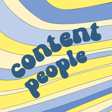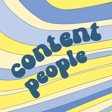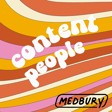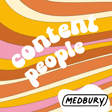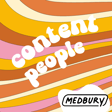
S2E10: Mastering LinkedIn, Midjourney and Career Pivots with Drew Brucker
Drew Brucker: Ever heard of him?
JK. If you're on LinkedIn, you probably know this dude.
Drew’s a razor-sharp marketer. A bleeding-edge Midjourney expert. And kind of famous here on LinkedIn.
I was so glad to get to pick Drew's brain for this week's ep of Content People.
We covered:
- Why Drew started posting on LinkedIn.
- What he thinks it takes to be successful on the platform.
- The podcasts that influenced his approach to content.
- Why staying up on AI is going to be imperative.
- How to engineer a career pivot. (Hint: Storytelling matters.)
Drew also walked me through the basics of Midjourney. And how he thinks it will massively transform marketing SOPs.
Follow and connect with Drew here on LinkedIn: https://www.linkedin.com/in/drewbrucker/
Follow and connect with Meredith here on LinkedIn: https://www.linkedin.com/in/meredith-farley/
Subscribe to the Content People newsletter here: https://meredithfarley.substack.com/
